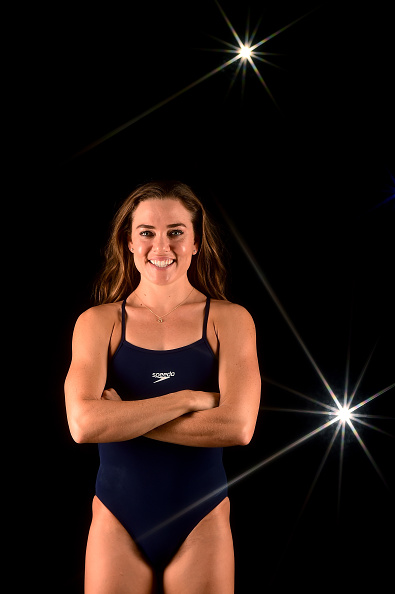Like one of those locust cycles that erupt with scientific predictability, here we are five months before an Olympic Games and, just on schedule, there’s an outbreak among the ladies and gentlemen of the press of OMG the-sky-is-falling. What, you say? These Rio Games are on track to be a disaster! Zika! Water pollution! Slow ticket sales! Ack! Danger, Will Robinson! Or maybe, you know, not.
It’s so foreseeable. It’s also eminently tiresome. This happens every single Olympics.
Here’s a call for reasonableness, a major dose of perspective and some balance. Not everything is a crisis, or needs to be treated that way.
It's elemental that there's no need to be Pollyanna.
At the same time, in advance of every single Olympics in recent memory, the press stirs itself — and consequently readers and viewers — into a gloom-and-doom, bad news-mostly frenzy.
Then the Olympic cauldron gets lit and, what do you know — the spectacle if not miracle that is the Games takes over and the next 17 days are predictably magic.
Bet that’s what happens in Rio, where the Games start on Aug. 5, roughly 150 days away.
In the meantime, and for entertainment purposes only of course, here’s a take on an old game — instead of a bean in a jar for every time a newlywed couple celebrates being married, put a dollar into a jar at each mention in the media between now and then of Zika and the Olympics.
By Aug. 5, you’d have enough to buy — well, so many mosquito nets you might do the honorable thing and send stacks to Africa.
"World Malaria Day" this year is April 25, aimed at focusing attention on that silent, relentless killer: 214 million cases of the disease in 2015, 438,000 deaths globally, 90 percent of which are in sub-Saharan Africa, 78 percent children under 5.
About 3.2 billion people are at risk, a little under half the world’s population, for malaria.
For sure not to dismiss anyone's suffering anywhere, but what's at issue is a major discrepancy in scale: 1.5 million cases against 3.2 billion people at risk. Why no slew of journalistically responsible stories about malaria?
For emphasis: Zika is assuredly important. Too, it is newsworthy.
Typically, Zika leads to a few days of aches and fever. But it has been linked to brain damage in roughly 650 babies. And a very few with the Zika virus also develop a paralysis called Guillain-Barré syndrome (the paralysis is normally reversible).
But, as the opening of the pre-Games U.S. Olympic Committee’s media summit Monday in Beverly Hills, California, underscored, the relentless focus on Zika is at least one and probably several degrees too many.
As things opened Monday, with a session involving several U.S. swim stars, including Ryan Lochte, Missy Franklin and Natalie Coughlin, the first question — with so many amazing stories sitting on stage — was about Zika.
Right after that came a session with USOC chairman Larry Probst, chief executive Scott Blackmun, high-performance chief Alan Ashley and marketing boss Lisa Baird — and a half-dozen questions about Zika.
The leadership group also got questions about doping in Russia, Kenya and Ethiopia. Including: what level of confidence does the USOC have that American athletes, particularly in track and field, will compete on a level playing field? And as a leader in the Olympic movement, does the USOC have any role in trying to shape a fix?
Hello? Don’t such questions pre-suppose that we in the United States are sporting the white hats and everyone everywhere else is not? Talk about short memories. It was only 12 years ago, before the Athens 2004 Games, that the United States, and in particular the U.S. track and field program — in the midst of the sordid BALCO mess — served as world poster child for dirty play.
Or maybe everyone has already forgotten that it was just three short years ago that Lance Armstrong, arguably the king of doping, had his memorable “confession” with Oprah Winfrey.
Oh, and inevitably, here came a question to the USOC leadership about whether the International Olympic Committee ought to consider an “alternate bid city” if “things start to fall apart.”
As if.
The USOC, remember, put Chicago up for the 2016 Games. It did not win. Rio did.
Just try to imagine the diplomatic, political and economic consequences of, for instance, yanking the Games away from their first edition in South America. Or, two years ago, amid the Sochi-is-not-ready whining and wailing, taking the Games away from Russia and Vladimir Putin.
The welcome turn finally came Monday afternoon with a group of track and field stars: Aries Merritt (looking healthy after a kidney transplant), Meb Keflezighi (the marathon star still going strong in his 40s), Allyson Felix (trying to run both the 200 and 400), Alysia Montaño (a champion pre-, during and post-pregnancy), Dawn Harper-Nelson (thoughtful, eloquent gold-medal hurdler) and Ashton Eaton (decathlon champion and world record-holder who is, simply, one of the truly great guys in Olympic sport).
The track and field group got questions about doping, for sure (Montaño: “not really confident” the playing field is clean). But for the most part the questions were about the athletes, and their stories (who knew Felix loves Beyoncé tunes?).
There are way, way, way more things going on in advance of these Olympics than Zika.
Like Paralympic champion Tatyana McFadden, who — take that, Galen Rupp, with talk of a 10k and marathon double — said from the stage that she intends in Rio to go for seven golds on the track: the 100, 400, 800, 1500, 5k, marathon and relay.
"You have to transform perceptions," the head of the International Paralympic Committee, Sir Philip Craven, said from two places away. "You only do this with positive experiences."
"I think we have to recognize what our role is," Blackmun had said earlier on the stage. "We're one of 200 countries that participates in the Olympic Games. By definition, you have to have someone in charge of the overall project. Every single Games brings its own unique set of challenges that causes people to question whether the Games should've been awarded to 'X.' "
Fact: it’s going to be winter in Brazil during the Olympics. Zika risk will thus likely be way, way down.
Fact: after the Olympic circus packs up, the people who live in Brazil are still, for the most part, going to be living in Brazil. You want to talk about Zika? No problem. You want to do a story now? Sure. But — make a commitment to get back to the story in a year or two, when the Olympic spotlight is not on.
(Query: last story earning front-page attention about LGBT issues in Russia was — when?)
As Adeline Gray, the female U.S. wrestling world champion who took part in a test event in Rio in January, said afterward, referring to the threat of the virus, "It’s part of traveling. This is something that the people of Brazil have to deal with on a daily basis. The fact that I’m only here for a short time. It’s not really fair for me to freak out about it to that extent. I think if I was planning to have a child in the next month, I would be extremely uneasy about this.”
Fact: as the USOC’s leadership made plain on Monday, it’s up to every single athlete to decide for him or herself whether to go to Rio. Prediction: every single eligible athlete will go. That’s what Olympic athletes do. We all live in a world of risk; they live for a moment that comes only once every four years, and maybe just once in a lifetime.
Blackmun said he was not aware of “any single athlete” making the decision not to go.
It was up to Coughlin, the versatile and veteran U.S. swimmer, to put things in some perspective. She took that first question Monday morning about Zika, answering from the stage, “There are always things that are beyond our control at the Olympic Games. This is just one of them.”
Let us review many of the recent pre-Games hysterias:
Sydney 2000: calendared for September, not July or August. Would anyone watch? Well, yes. Remember Cathy Freeman? Lighting that cauldron of fire? And her 400-meter victory, just one race on what was an amazing night on the track? How quickly the narrative turned — Sydney, best Summer Games ever.
Salt Lake 2002, the first post-9/11 Games: terrorism. Everything turned out just fine.
Athens 2004, the first Summer Games after 9/11: again, terrorism. Many media concerns even put reporters and crew through gas-mask training. Everything turned out just fine.
Beijing 2008: Human rights. Cost overruns. And air quality, with a tornado of stories warning that the skies were going to be filthy and the athletes might not even, you know, breathe. The skies were mostly blue. As for athletic performance: Michael Phelps, eight gold medals. Too inside for you? Outside: Kenya’s Sammy Wanjiru winning the men’s marathon (on a hot, sunny morning) in an Olympic-record 2:06.32.
London 2012: again, terror (the July 2005 underground attacks). Cost overruns. General angst from the “forensic” British press, to use the term favored by now-IAAF president Sebastian Coe. Now London is, in the minds of many outside Australia, considered the best Games ever.
Sochi 2014: LGBT issues. Black Widow bombers. Putin. $51 billion. Hotel rooms not quite ready a few days before opening ceremony. Everything turned out fine.
No less an authority than the Economist — Nelson Mandela’s magazine of choice during his 27 years of imprisonment at Robbin Island — published a feature a few days ago under a headline that declared, “An Olympic oasis,” and, underneath, asserted in plain terms that Zika “will not be much of a threat to the Rio Games.”
It went on:
“There is already much to celebrate about the Rio Olympics, though with their city turned into an obstacle course of road works for the new metro and bus lanes, cariocas” — what the locals call themselves — “may not yet feel like cheering. There has been no obvious waste or corruption. The city has used the Games as a catalyst for a wider transformation.”
The mayor since 2009, Eduardo Paes, “tore down an elevated motorway that scarred the old port, burying it in a tunnel. The port area now hosts new museums and public spaces; next month a tramway will open there. Apart from better public transport, the Olympics may bequeath an overdue revival of Rio’s decayed and crime-ridden historic centre. If urban renewal were a sport, that would win a gold medal.”
You want a story, ladies and gentlemen? That’s a story.






















